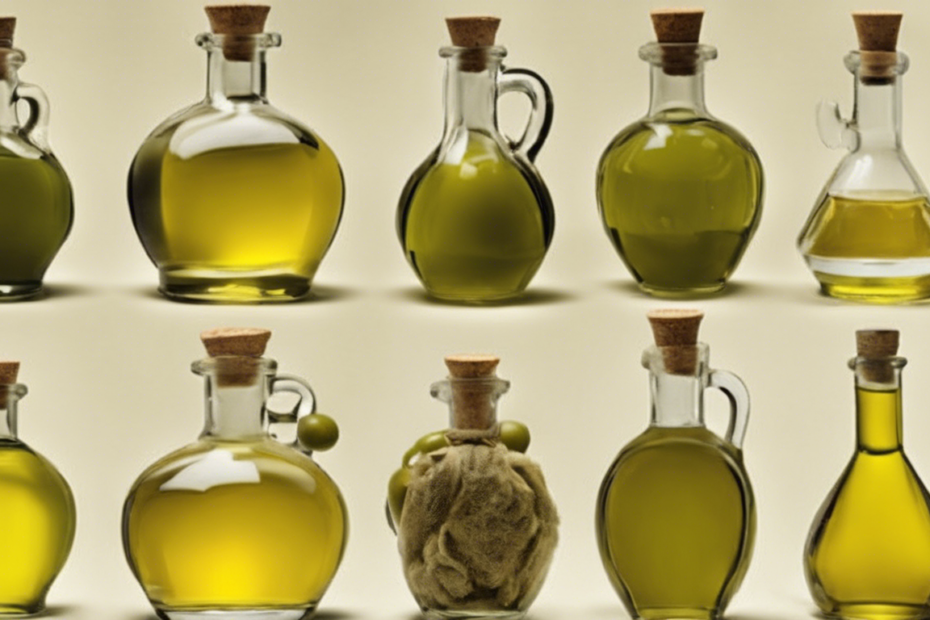Ever taken a sip of that high-quality olive oil only to find yourself suddenly coughing?
You’re not alone!
Many people experience this unexpected reaction, and it can be quite puzzling.
In this article, we’ll dive into the science behind why olive oil makes you cough, explore the common causes of this phenomenon, and offer some simple solutions to help you enjoy your favorite oil without the unwanted side effects.
Key Takeaways
- Olive oil can cause coughing due to its high phenolic content, which irritates the throat.
- People with sensitivities may cough after consuming extra virgin olive oil due to its intense flavor.
- Coughing from olive oil is often a temporary reaction and not a cause for concern.
- To manage coughing, consider using lower-quality oils or adjusting your consumption method.
- Proper storage and knowledge of olive oil can help prevent coughing episodes.
The Science Behind Olive Oil and Coughing
If you’ve ever found yourself in a coughing fit after a drizzle of olive oil, you’re not alone—many people wonder, ‘Why does olive oil make me cough?’ One possible explanation lies in the quality of the oil you’re consuming.
High-quality, extra virgin olive oil is rich in phenols and antioxidants that can irritate the throat, especially if you’re not used to ingesting them in such concentrated forms.
Additionally, if the oil has a strong, peppery profile, it may trigger a reflex reaction as your body attempts to clear any irritants.
This is particularly true for people with sensitivities or allergies, as even small amounts of certain components in the oil could provoke a cough.
To manage this pesky issue, try selecting milder options or pairing olive oil with food to ease its intensity.
Moreover, consider checking for high-quality oils that undergo minimal processing to reduce the chances of throat irritation.
By being mindful of the type and amount of olive oil you consume, you can enjoy its health benefits without the cough!
Common Causes of Coughing After Consuming Olive Oil
Ever noticed that olive oil makes you cough sometimes?
You’re not alone!
While olive oil is celebrated for its health benefits, especially its rich anti-inflammatory properties and antioxidants, some people experience a tickle in their throat right after they indulge in it.
This reaction can be caused by a few factors: the presence of polyphenols in high-quality extra virgin olive oil can have a strong, peppery taste that might irritate the throat, or you could be sensitive to the oil itself.
In some cases, consuming oils that aren’t filtered properly could lead to issues as well.
To manage and prevent this annoying cough, consider opting for a well-refined, less intense olive oil, or simply diluting it with other ingredients in your meals!
Staying well-hydrated also helps in soothing your throat, making those delicious Mediterranean dishes much more enjoyable sans the cough.
So, next time olive oil makes you cough, keep these tips in mind!
‘Let food be thy medicine and medicine be thy food.’ – Hippocrates
Managing and Preventing Coughing from Olive Oil
If you’ve ever found yourself in a fit of coughing after tasting olive oil, you’re not alone—many people have experienced this surprisingly common reaction.
So, what’s behind it?
Well, olive oil can contain certain polyphenols and compounds that may irritate your throat, especially in high-quality, fresh oils that are rich in antioxidants.
To manage this, try switching to lighter oils or those that are milder in flavor, as they might be easier on your throat.
Additionally, warming your olive oil slightly before using it in dishes could help reduce its sharpness, making it less likely to trigger a cough.
If you’re cooking with olive oil, remember to incorporate it as part of a meal rather than consuming it straight, as this can help mitigate any irritation.
Ultimately, knowing your body’s reaction to different oils can help you enjoy the rich flavors of olive oil without the unexpected coughing fit!
Frequently Asked Questions
Why does olive oil make me cough?
Olive oil can cause coughing primarily due to its high phenolic content.
When these compounds come into contact with the throat, they can stimulate a mild irritation or reflex cough.
Is it normal to cough after consuming olive oil?
Yes, it’s relatively common for some people to experience a cough after consuming extra virgin olive oil, especially if they are not used to the strong flavor and health properties.
What can I do to avoid coughing when using olive oil?
To avoid coughing, consider opting for a milder olive oil or reducing the quantity you consume at once.
Sipping water or consuming food alongside the oil can also help mitigate the cough reflex.
Are there specific types of olive oil that are less likely to cause coughing?
Yes, lighter oils or those with lower phenolic content tend to cause less irritation and coughing compared to robust, high-quality extra virgin olive oils.
Should I be concerned about coughing after consuming olive oil?
Generally, coughing after consuming olive oil is not a serious concern.
However, if coughing persists or causes discomfort, it’s best to consult a healthcare professional.
